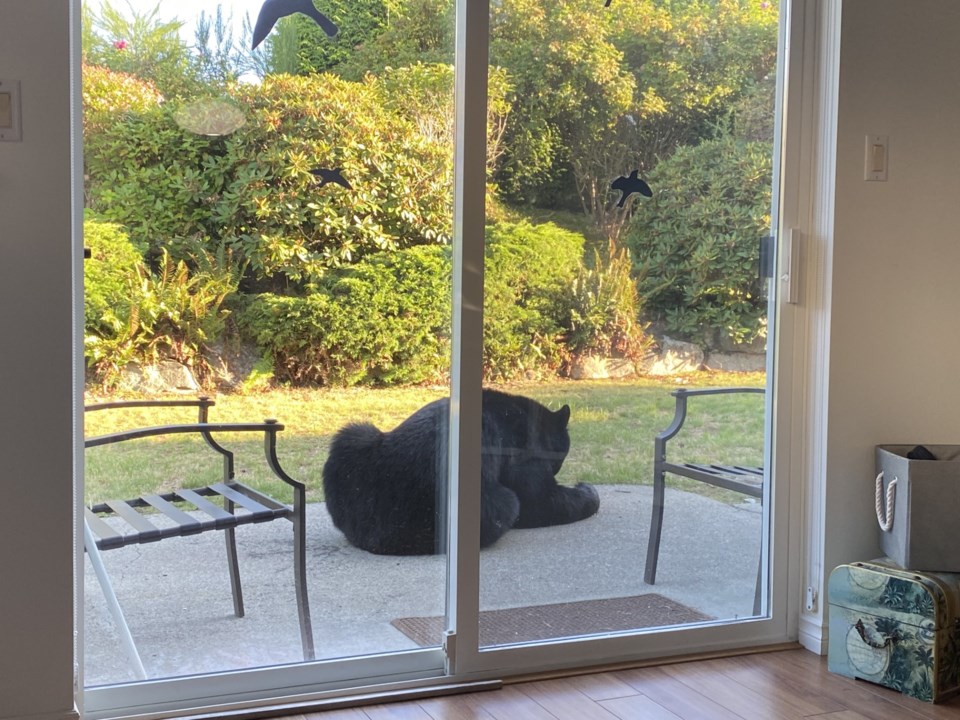Local conservation officers set a culvert-style trap in response to heightened black bear activity around Sechelt. Whether or not a bear was transported has yet to be confirmed.
Locally based BC Conservation Officer Service (BCCOS) representative Dean Miller said two bears have been very active in the downtown Sechelt core.
Over the last few months, Miller said BCCOS has received daily reports of the bears walking downtown, knocking over municipal garbage cans and a few cases of the bears approaching people.
Although bears are more active this time of year in urban areas as they enter hyperphagia leading up to hibernation, Miller said it’s pretty extreme for a bear to be walking downtown in the business core on a daily basis.
Miller said one oddity about this abnormal behaviour is the natural berry production on the Sunshine Coast mountains has been strong this year, which he said suggests these bears have become highly habituated to human areas.
“They’re very determined and they have long memories,” Miller said. “So when they do get a food reward, it encourages the behaviour and they won't forget that.”
While Miller confirmed the trap was set with the intention of trapping at least one of the bears, he was not on the Coast at the time and couldn’t confirm if a bear was trapped and transported.
He added that they only use this equipment when there is a public safety concern and they follow procedures set out by their bear biologist group as well as their provincial veterinarian.
One reason the bears like Sechelt is the number of older homes with heritage fruit and nut trees, which bears monopolize this time of year, Miller said.
Miller shared that starting Sept. 4, BCCOS will be beginning a “dedicated wildlife attractant enforcement blitz” in the downtown core so that businesses and residences are aware of the presence of bears and how it is illegal to have available food sources in outside areas for dangerous wildlife.
Jordan Copp is the Coast Reporter’s civic and Indigenous affairs reporter. This reporting beat is made possible by the Local Journalism Initiative.



